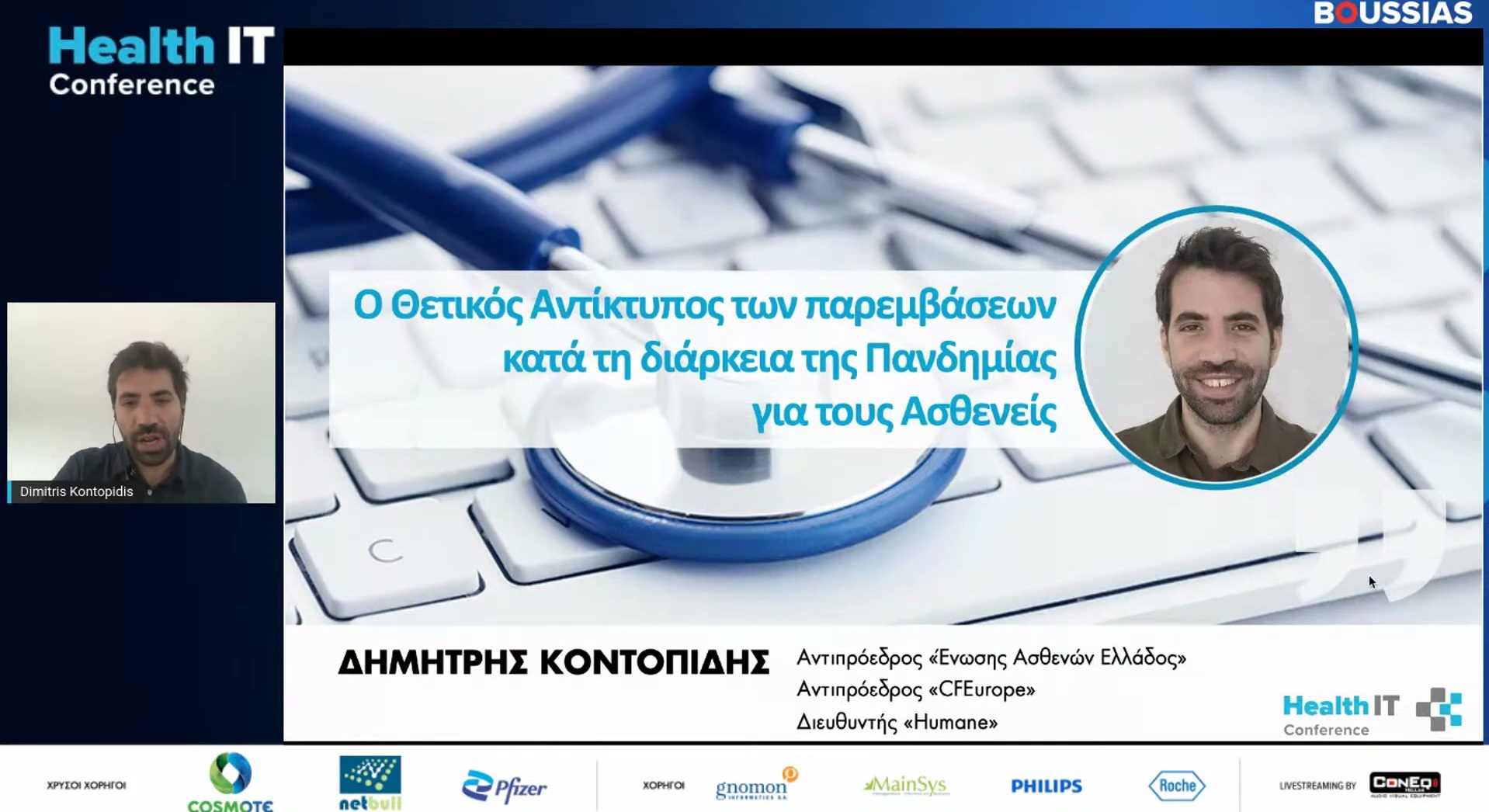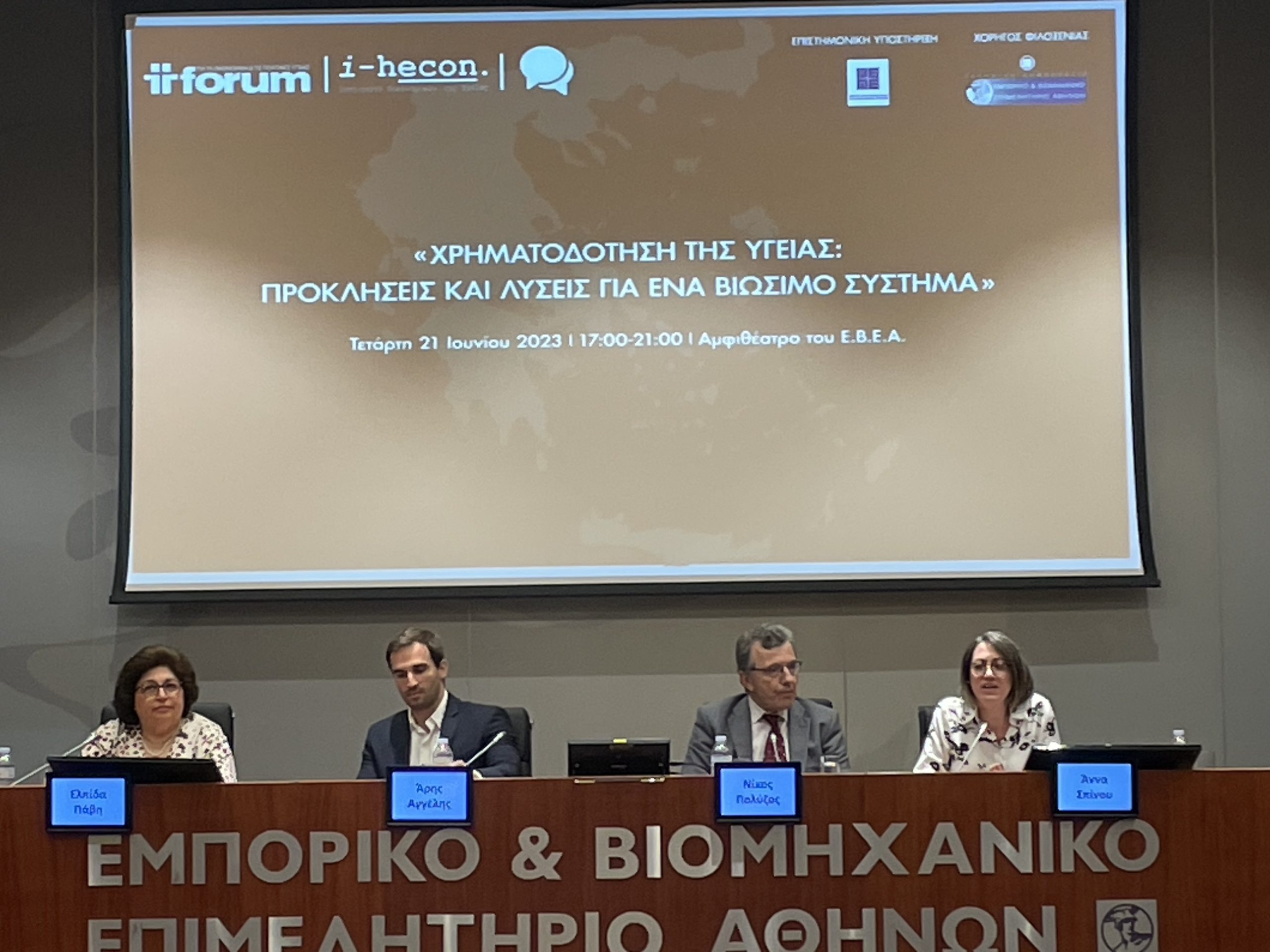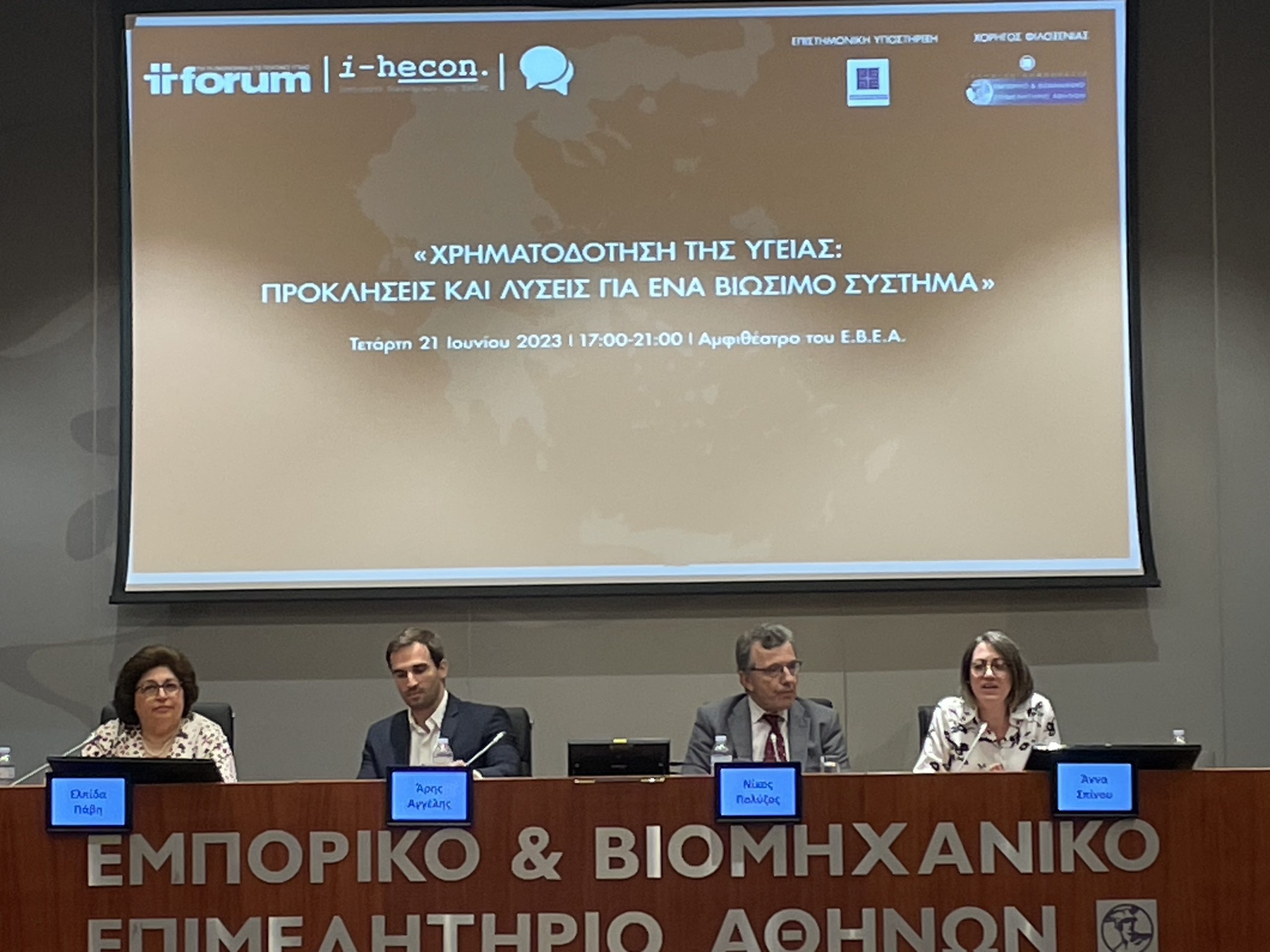18/6/2021
“Health IT Conference 2021” on digital health in the Covid-19 period
The 4th “Health IT Conference 2021” on digital health in the Covid-19 period, organized by Netweek of BOUSSIAS and HealthDaily under the auspices of the Ministry of Health and in collaboration with the General Secretariat of Health Services, HL7 Hellas, HDIKA SA and the Institute of Informatics of the Foundation for Research and Technology-Hellas, took place on 15-16 June. The conference highlighted the ways in which the digital transformation of the health system and the implementation of Information and Communication Technology tools respond to the changing environment of the pandemic.
This year’s 2-day conference featured 70 distinguished speakers who are involved in the presentation and implementation of the National Digital Strategy for Health.
On the patient side, Dimitris Kontopidis, Vice President of the Hellenic Patients Association and the European Cystic Fibrosis Association CF Europe, participated and described the positive impact of digital services and interventions for patients during the pandemic.
He said that in the Hellenic Patients Association, which is the highest body representing patients from different therapeutic categories, there is a general picture of what is happening in chronic diseases in Greece. Patients could not be absent from this dialogue and this conference showed in practice its patient-centeredness by inviting patients to position themselves and describe how they experienced the changes in health in the time of the pandemic, what were the changes they encountered, what they learned from them, and what are the health challenges of the future.
In the first part of his speech, Mr. Kontopidis presented the technological interventions in health, thanks to which the quality and life expectancy of patients has improved. Thanks to paperless prescription with medical certificates, bureaucracy has been reduced. Patients were protected from hospital visits and from exposure to germs and coronavirus, and time was saved from prescription-only visits. This reduced the additional inconvenience of chronic patients, travel costs and the geographical inequality of patients. Simultaneously with the electronic appointments at the EOPYY pharmacies in Athens and Thessaloniki, we had more direct service to patients and more immediate access to their treatment, while the integration of the rest of the EOPYY pharmacies in the country is expected.
As part of the planning of the national covid-19 vaccination campaign, the technology served as a public health tool. The online platform for scheduling appointments and vaccination was a health prevention tool for the individual and the wider community, user-friendly for users of all ages, which contributed to service by geographical area, reducing patient inconvenience, reducing morbidity and increasing health of the general population, and was a useful familiarization tool for subsequent uses (notifications for screening, screening).
The challenges of the next day for patients were then described. What patients expect is the expansion of telemedicine and the digital hospital, while the main priority of the Hellenic Patients’ Association is digital literacy and education of all patients to familiarise them with the use of technological tools. Patient self-management tools per treatment category, such as mobile apps, wearables, etc. should be utilized, while the interconnection and interoperability of all systems with each other should be improved. There should also be measurement of patient satisfaction and evaluation of health services in order to improve the quality of health care with a better allocation of resources. Particular attention should also be paid to the protection of patients’ and citizens’ personal data.
At the end of his speech, Mr Kontopidis referred to the need for the involvement of all stakeholders (doctors, pharmacists, government agencies, patients) in the design and implementation of technological tools for health from the outset. The next day of the digital revolution should be driven by patients, who are the richest source of information. Patients should be involved as experts from the beginning of the design and implementation of tools, not as end users. This approach will result in the design of technological tools that are innovative, personalised, effective, usable and lead to increased patient compliance, as well as saving resources and improving health.
Here you can watch the speech of Dimitris Kontopidis,
and here you can watch the first day of the conference.





